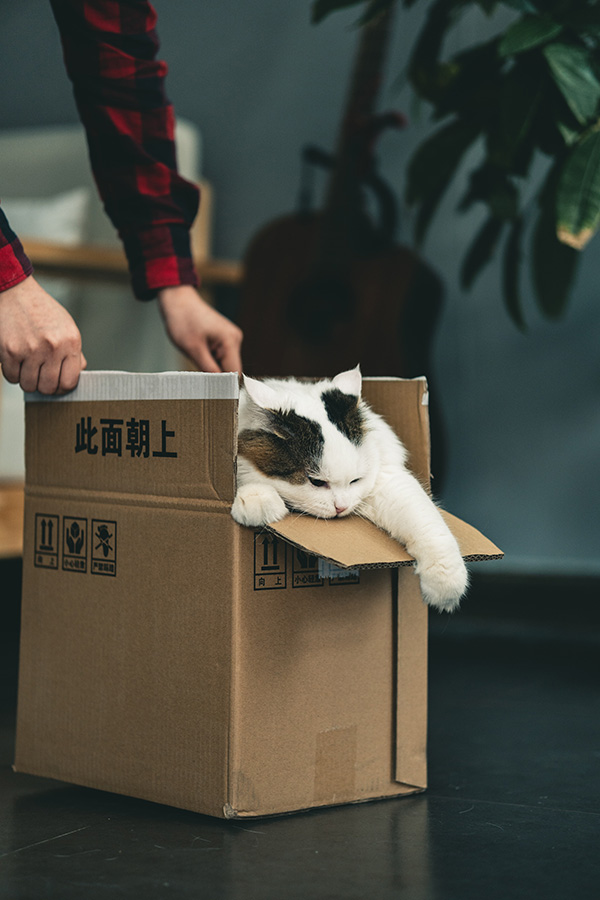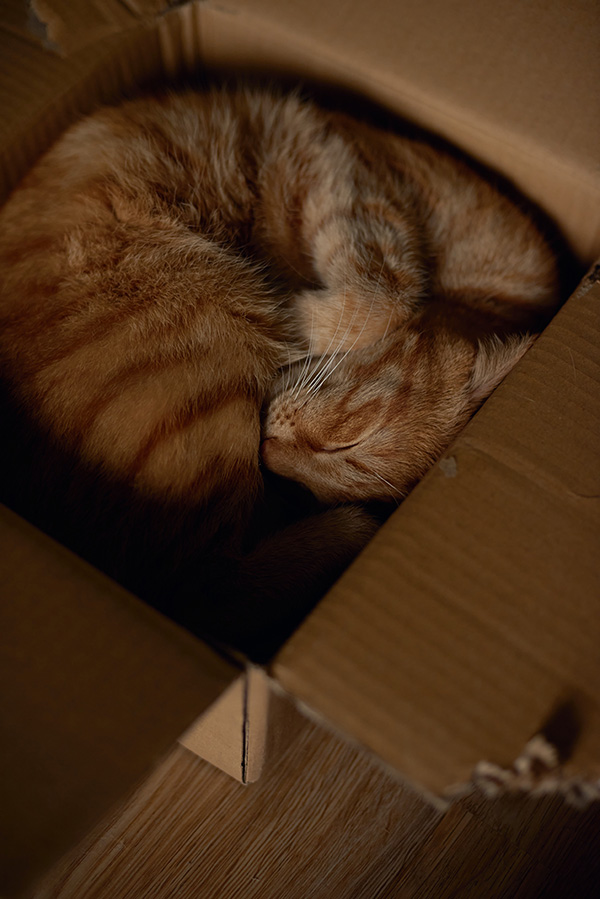Have you ever wondered why your pet cat goes absolutely gaga over an empty cardboard box? It's a mystery that has baffled cat owners for generations, and while we may never fully understand the intricacies of the feline mind, we can certainly shed some light on this quirky and endearing behavior.
Cats and boxes— it's a love affair that transcends borders and breeds. From the tiniest kittens to the big cats of the wild, these graceful creatures seem to share an uncanny fascination with all things box-shaped. But what lies beneath this peculiar infatuation? Why do cats like boxes and transform into instant explorers and nap enthusiasts when a box enters their world?
In this blog post, we will dive into why cats like boxes and explore the intriguing reasons behind cats' undying love for boxes. From their ancestral instincts to their need for security and their love of play, we'll unravel the secrets behind this endearing behavior.
Reasons Cats Love Boxes
Instinctual Hide-and-Seek
Like wild cats, house cats' natural hunting instincts include stalking prey and seeking cover before pouncing. Empty boxes provide an ideal environment for them to practice these behaviors. They can hide in the box, peering out with a watchful eye before making their move.
Temperature Regulation
Cats are known for seeking warmth and comfort. Cardboard boxes are insulating and can trap a cat's body heat, creating a toasty nook to keep cats warm. This is especially appealing in colder months when cats may be drawn to the warmth boxes provide.
Stress Reduction
Cats are creatures of habit and can become anxious when faced with unfamiliar situations or changes in their environment. A box offers a safe, enclosed space where they can retreat to reduce stress and regain a sense of security.
According to a 2014 study on shelter cats, the presence of hiding boxes had a stress-reducing effect on them. The study indicated that domestic cats given access to a hiding box exhibited a quicker adaptation to their new environment when compared to cats that did not have access to such a hiding place.
Territorial Marking
Cats possess scent glands on their cheeks and near their paws. When they rub against the corners of a box, they leave their scent markings. This behavior marks the box as their territory, which can comfort them and help establish a sense of ownership.

Image Source: Unsplash
Predatory Play
Many cats love to engage in play that mimics hunting behavior. They can crouch, stalk, and pounce inside a box, much like they would in the wild. Boxes thus become hunting grounds for them, providing both mental and physical stimulation.
Just Curious
Cats are inherently curious creatures. When a new object, such as a box, is introduced into their environment, they feel compelled to investigate it. They use their keen senses to explore the box's texture, scent, and shape.
Sensory Stimulation
Cardboard boxes can offer a variety of sensory experiences. Cats may scratch the cardboard to sharpen their claws, producing a satisfying sound and texture. The crinkling noise of the box as they move around inside can also be stimulating and entertaining.
Privacy and Solitude
Cats cherish their solitude. Boxes provide a secluded, private space where they can retreat from the world and enjoy solitude. This holds particular significance in households with multiple pets or bustling environments.
Observational Advantage
Cats are natural observers, and boxes with holes or openings allow them to maintain a watchful eye on their surroundings while remaining concealed. This satisfies their desire to be aware of what's happening in the household without feeling exposed.
Sensory Stimulation
Cardboard boxes can offer various sensory experiences. Cats may enjoy scratching the cardboard to maintain their claws or relish the crinkly sound produced as they move inside.
Texture and Chewability
Cats inherently need to chew to maintain dental health and alleviate stress. Cardboard offers a satisfying texture that cats can gnaw on, much like they would with grass or other vegetation in the wild. Chewing on cardboard can aid in maintaining their dental hygiene and ensure their teeth remain healthy.

Image Source: Unsplash
Sleeping Sanctuary
Cats are known for their love of sleep, and the enclosed spaces of boxes can create a secure and cozy sleeping environment. Cats often seek out quiet, protected spots for napping, and a box can provide the ideal sanctuary for a quick catnap.
Box Shape and Size
Boxes come in various sizes and shapes, and many provide the perfect dimensions for a cat to curl up comfortably. The snug enclosure of a box can simulate the comforting sensation of being in a den or burrow, which cats find calming.
Mimicking the Womb
Some experts suggest that the enclosed space of a box may remind cats of the secure, enclosed environment of their mother's womb. This feeling of safety and comfort can comfort cats, much like swaddling is for infants.
